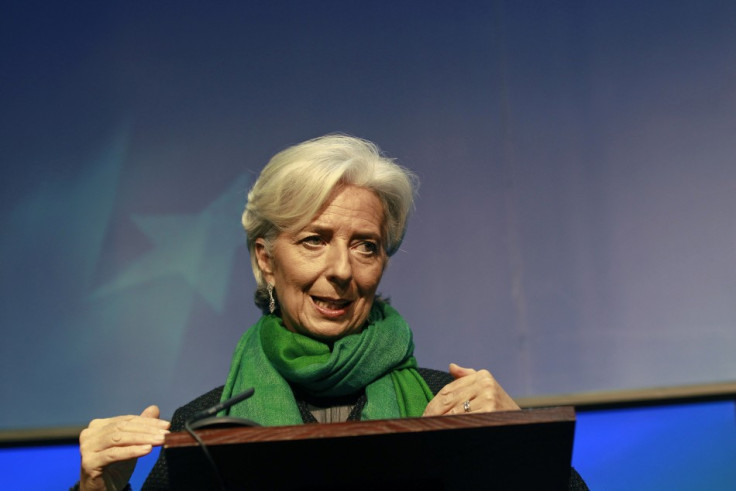IMF Chief Christine Lagarde: Icarus-Like Financial Sector Flew too Close to the Sun

The world's Icarus-like financial sector may have had its wings burned by the crisis, but there is still much work to do in humbling it, according to the chief of the International Monetary Fund.
Christine Lagarde, who heads the Washington-based IMF, was speaking at a conference in London on the idea of "inclusive capitalism" alongside former US president Bill Clinton and Bank of England governor Mark Carney.
"We are all familiar with the factors behind the crisis—a financial sector that nearly collapsed because of excess," said Lagarde.
"A sector that, like Icarus, in its hubris flew too close to the sun, and then fell back to earth—taking the global economy down with it."
Lagarde blamed the unfettered, excessive risk-taking of financial firms before the crisis took hold for helping to bring down the system.
And she said that one of the biggest unresolved issues is that of "too-big-to-fail" – banks that are so large their collapse threatens the stability of the entire global financial system, meaning taxpayers have to step in and prop them up with bailouts.
Moreover, Lagarde said there is still more to be done in changing the culture of finance through reshaping how bankers are paid.
The European Union (EU) is attempting to introduce a cap on bonuses of up to 200% of fixed pay, though some banks have already moved to increase salaries in response to this.
"While some changes in behaviour are taking place, these are not deep or broad enough," she said.
"The industry still prizes short-term profit over long-term prudence, today's bonus over tomorrow's relationship."
She said the pre-crisis type of financial capitalism was "more extractive than inclusive".
"The size and complexity of the megabanks meant that, in some ways, they could hold policymakers to ransom," said Lagarde.
"The implicit subsidy they derived from being too-big-too-fail came from their ability to borrow more cheaply than smaller banks—magnifying risk and undercutting competition."
© Copyright IBTimes 2025. All rights reserved.






















